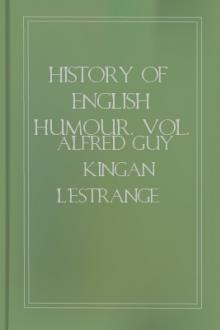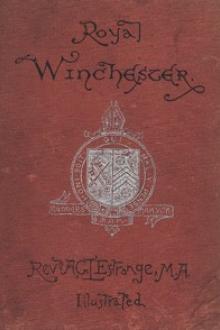History of English Humour, Vol. 1
History of English Humour, Vol. 1
With an Introduction upon Ancient Humour
Book Excerpt
quire to be fed as it were, and although they can enjoy what is embellished by others, have no original observation. Thus, although Herbert Mayo is substantially correct in saying that "humour is the sentiment of the ludicrous," he might have added that there is a difference between the two in our knowledge of them. In the former, the creative mind is more marked, and, a man though he laughs much, if he be dull in words is only considered to have mirth, i.e., joyousness or a sense of the ludicrous, not humour. The gift can only be brought prominently forward in speech or writing, and thus humour comes to be often regarded as a kind of ingredient or seasoning in a speech or book, if not actually synonymous with certain sentences or expressions. Still we always confine the name to human productions, as, for instance, gestures, sayings, writings, pictures, and plays.
The recognition of the mental character of humour did not necessarily imply any knowledge as to the authority, instability, or cons
Editor's choice
(view all)Popular books in Humor, Fiction and Literature
Readers reviews
0.0
LoginSign up
Be the first to review this book

 Free Download
Free Download
























-itok=vcKIB5v1.jpg)